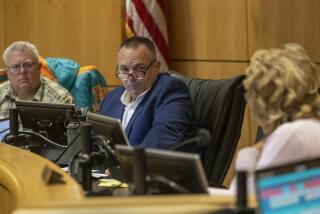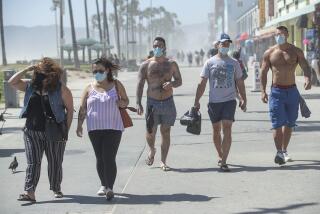Coronavirus bears down on a small Montana town
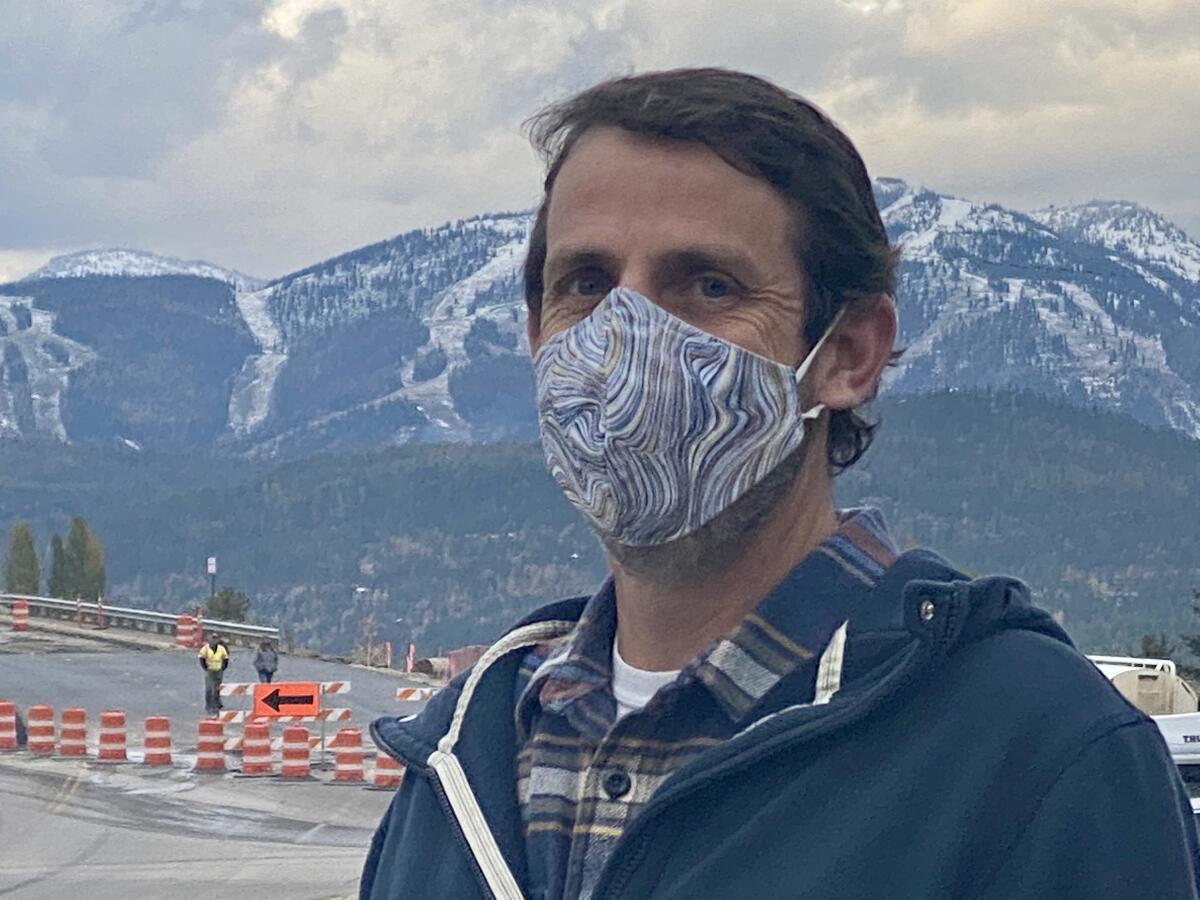
WHITEFISH, Mont. — When Steve Qunell won a seat on the City Council last year in this town of 8,000, he figured he’d be dealing with potholes and affordable housing.
Instead, he finds himself at the center of a raging debate over how to fight the coronavirus, which is surging in Montana like never before.
For the record:
12:56 p.m. Oct. 24, 2020An earlier version of this story misidentified Dr. Jeffrey Tjaden as the person who interjected, “No, it doesn’t,” at the health board meeting. Dr. Peter Heyboer said it.
The state’s governor, Steve Bullock, a Democrat who is in the final stretch of a tight U.S. Senate race and has been reluctant to impose restrictions that could hurt his campaign, called on the hardest-hit counties to consider shutting bars and enforcing a statewide mask mandate.
There was little appetite for that in conservative Flathead County, where the health board has been dominated by an outspoken doctor who argues that the pandemic is a hoax.
That put the onus on the Whitefish City Council.
“We are the last line of defense,” Qunell, a 49-year-old high school social studies teacher, told his fellow council members during an online public meeting this week. “Are we going to lead? Or are we just going to follow the nonbelievers in the county?”
Places like Whitefish once could afford to view the pandemic as a distant big-city problem. Through mid-September, sparsely populated Montana had a death toll of 140.
But that figure has doubled over the last five weeks as a new wave of infections sweeps the country. More than 85,000 cases were reported nationwide Friday, the most in a single day since the pandemic began.
The worst outbreaks are in the rural Midwest and Rocky Mountains. With 4,693 new cases over the last week, Montana had the country’s third-highest infection rate, trailing only the Dakotas.
The rise in Montana has overwhelmed efforts to conduct contact tracing and strained health systems across the state.
And as events in Whitefish show, efforts to stem exponential increases are pushing up against a culture that prides itself on rugged independence and freedom from government rules.
Early in the pandemic, Whitefish, a gateway to ski areas and Glacier National Park, moved more decisively than many other communities to contain the virus.
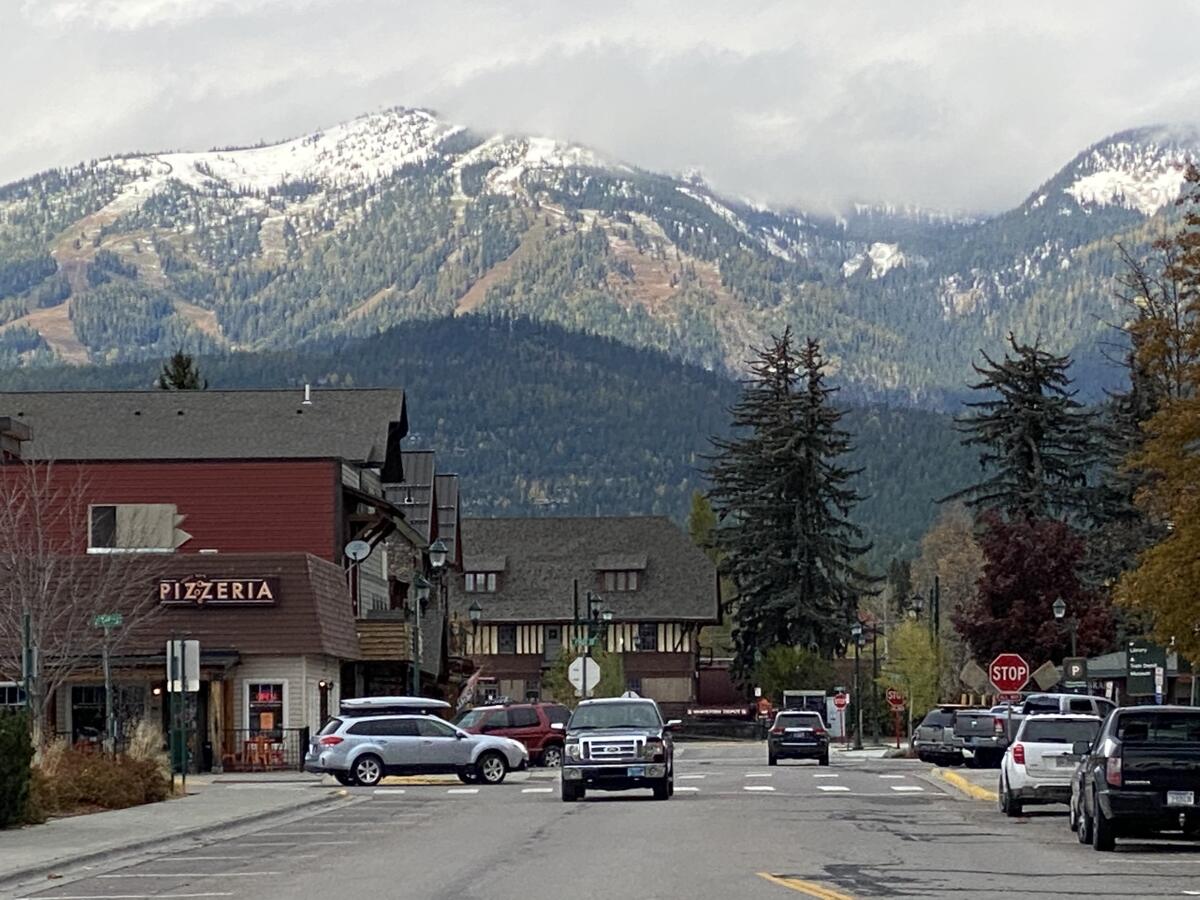
Last spring, the City Council ordered hotels and short-term rental properties to take in only essential workers — a requirement that remained in place until the end of May.
Whitefish was also one of the first cities in Montana to make people wear masks — though the governor soon issued a mandate statewide.
Still, from the beginning, there was strong local opposition to such restrictions.
Leading the resistance was Dr. Annie Bukacek, a 62-year-old internist known for her far-right views and opposition to vaccination.
Flathead County commissioners appointed her to the county health board last December after dismissing two other doctors with more public health experience — changes the commissioners said were meant to increase the diversity of views.
Bukacek became a hero of anti-lockdown activists across the country last spring after she delivered a speech to a local church congregation alleging that the federal government was exaggerating the coronavirus death toll.
“People are being terrorized by fearmongers into relinquishing cherished freedoms,” she told members of the Liberty Fellowship.
She wore a lab coat and stethoscope for her presentation, which has been viewed more than 860,000 times on YouTube.
The congregation is led by Chuck Baldwin, who is described by the Montana Human Rights Network as “the unofficial reverend of the militia movement.” He has defied state orders by continuing to hold in-person services.
Bukacek and a small group of allies protest outside schools and government buildings a few times each week to demand an end to mask requirements and other state restrictions they equate to martial law.
Their message struck some as plausible last summer as cases and deaths remained low, even as more tourists than expected visited Whitefish and the national park.
Eventually though it became clear that Flathead County, population 100,000, would not avoid the kind of suffering that so many other parts of the country had experienced.
The first major outbreak in Whitefish struck a nursing home in August, infecting 43 of the 52 patients — and ultimately killing 13 of them.
The county’s biggest hospital, the Kalispell Regional Medical Center, soon started seeing more admissions to its coronavirus ward.
Erica Lengacher, a 46-year-old critical-care nurse who works nights in the ward, could cope with the stress of watching patients dying. That was part of the job.
Harder to deal with was the indifference that opponents of basic safety measures seemed to have for victims of the pandemic.
“I just felt deep, deep sadness that while I saw patients suffer and die, there was a sense that our community had moved on and didn’t really care,” she said.
“I realize that there’s a historic tension between public health and individual liberties,” she said. “But a good portion of our community is flouting the state mask mandate, and I still can’t get my head around how this has become so politicized and divisive.”
The number of patients on the coronavirus ward has hovered around 29 in recent days, but managers are recruiting more nurses in case things get worse.
Recent outbreaks in Flathead County — where the total number of people known to have been infected doubled to more than 2,800 over the last three weeks — have been traced to large gatherings at four churches, four weddings, three political events and two trade shows.
This week the county health department advised residents to stay at home as much as possible and limit contacts outside their families to no more than six people a week, each for 15 minutes or less. The recommendations have been widely disregarded.
Tamalee St. James Robinson, the interim county health officer, said in an interview that she has the authority to make such measures mandatory but that more rules would be useless because officials were refusing to enforce those already in place.
The county prosecutor, Travis Ahner, said he was focused on crime and didn’t see a point in cracking down on businesses for mask violations.
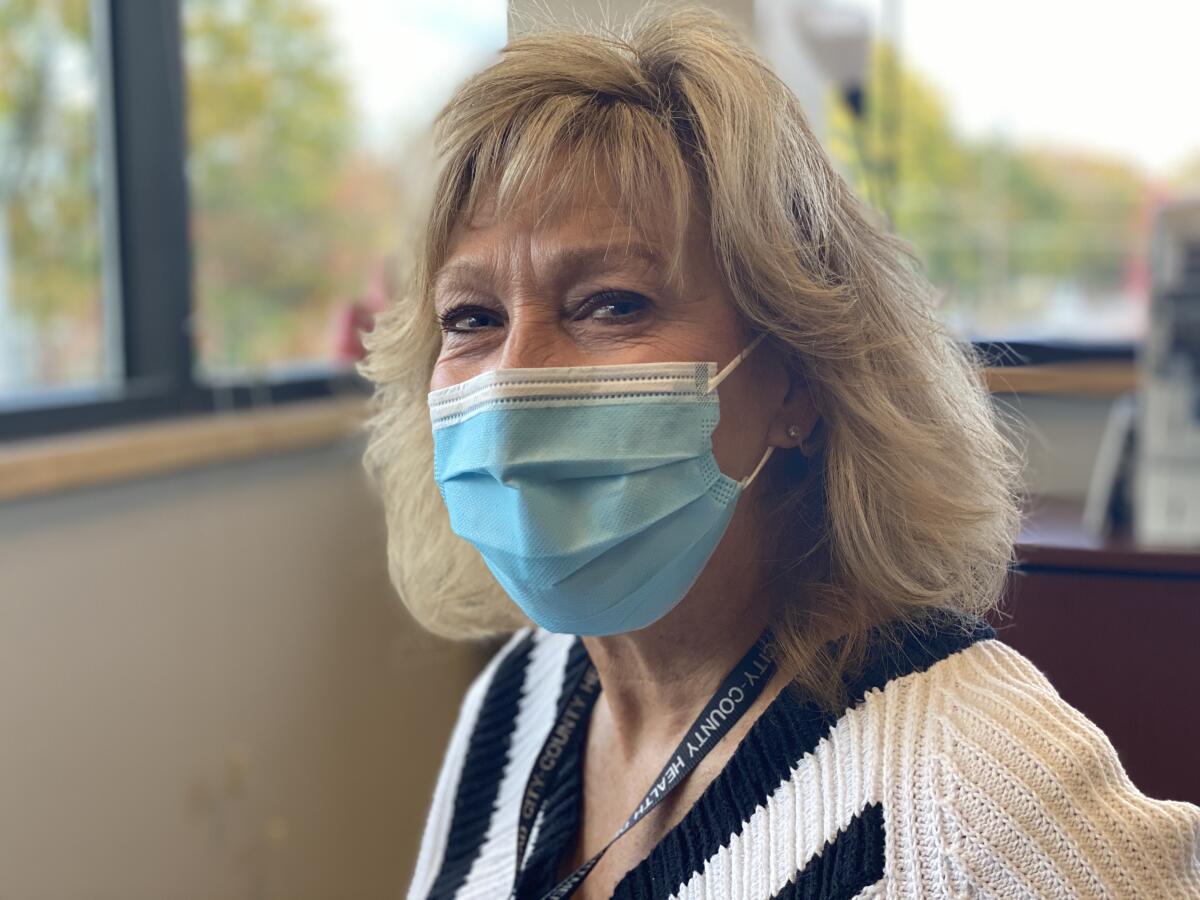
For their part, the county commissioners released a statement this month supporting “the Constitutional rights of Montanans to make choices about personal protections for themselves.”
“Where does that leave me, just me out there?” Robinson asked.
As for the county health board, Bukacek prevailed in the latest battle over whether to limit social gatherings.
“Statistically, for practical purposes, COVID in Montana has 100% survival,” she said last week during an online public meeting of the board.
“No, it doesn’t!” shouted Dr. Peter Heyboer, a board member and internist.
A minute later, Dr. Jeffrey Tjaden, a local infectious disease specialist, interrupted Bukacek to say that he was so fed up with her presentation that he was logging off.
“I’m not saying that the people who died didn’t matter,” Bukacek said.
At the end of the night, the board members were left with a single proposal: no gatherings of more than 500 people.
They rejected it with a 5-to-3 vote.
That prompted criticism from the governor, who said he was disappointed that the board ignored experts and that “some are trying to politicize this virus” over protecting health and safety.
“The message was presented loud and clear that if the virus spread is not controlled in the Flathead area, schools will have to close, parents will be out of the workforce, businesses will be hurt and the hospital will run out of bed capacity,” Bullock told reporters.
This week, he announced that state investigators had conducted spot checks on more than a dozen businesses in Flathead County and that authorities will ask a judge to temporarily shut down five establishments deemed “egregious violators” for flouting mask requirements and social distancing standards.
The biggest looming threat may be winter, because the virus spreads most easily when people are indoors.
In Whitefish, temperatures plunged Friday as the season’s first major snowstorm hit.
“It’s time for action, and it has unfortunately fallen to us,” Qunell told his colleagues at this week’s City Council meeting.
The city manager suggested writing a letter to the health board encouraging it to act. A councilman said another letter to businesses might persuade them to cooperate.
Qunell didn’t see the point.
“The county’s not going to do anything no matter what letters we write,” he said.
He wanted the council to vote to close bars by 10 p.m. — before they usually get crowded and rowdy — and limit restaurants to 25% of capacity.
But the only thing the council decided was to meet again Monday to consider imposing limits during Halloween weekend, when Whitefish traditionally puts on a popular downtown bar crawl.
In an interview, Qunell said Whitefish must find a balance between protecting citizens and the economy that has eluded national, state and county leaders.
“There’s been a failure of leadership from the very highest levels,” he said. “The responsibility keeps getting pushed downhill, and it’s ended up in our laps.”
More to Read
Sign up for Essential California
The most important California stories and recommendations in your inbox every morning.
You may occasionally receive promotional content from the Los Angeles Times.

